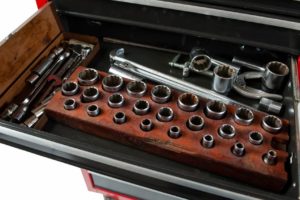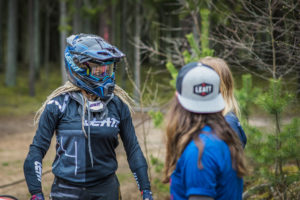This week I will again visit the friend whose birthday 10 years ago prompted the trip that became this story. Travelling with me will be my teenage daughter, who at the time of this story was four. It’s not my intention to regularity resuscitate the past, but this piece has been mentioned by a number of supporters and reappears as a thank-you gesture for helping hoistThe Blue Grooveto its feet.
When we ride we are perpetually at risk. But a motorcycle trip can save a life, too. In the months and years that followed my return home from New York City, I’d return to this journey as a way of remembering that travelling alone is different thanbeingalone—that movement is perpetual rebirth and a friend in itself. And when your life flips upside down, you need all the friends you can find.
An old friend’s birthday, a jazz giant, an American icon’s epic journey, and 500 miles to Manhattan to escape a life in ruin
My mother, four years dead, has sprung back to life and is working as a waitress in the Pine Grove Restaurant in Tupper Lake, New York. I recognize her as soon as she speaks. “You’re on a motorcycle,” she says, withholding the menu and glaring while I rub the chill from my hands. I don’t respond. This is to be a one-way conversation. “Well, with the deer and the moose I just can’t believe some try to make time after the sun’s gone down. Saw a bunch of motorcycles here the other night; well, what with the liquor and the deer and the moose it takes all kinds. Not me though, I’ve too much of a will to live to want to die in a ditch just to save time.” My mother has still not handed me the menu. I snatch it from her and lower my face to the page. I ask for the fish, grilled not fried. She asks if I’d like a glass of “alcohol.” I decline. She softens. I ask the distance to Lake Placid. “An hour at night or 40 minutes tomorrow morning.” She wins. A mile down the road neon guides me to a motel. I lie on the polyester bedspread and fall asleep with jacket and boots still on. In the morning the key to the Ducati is still in the ignition.
我和约翰在touc的做好本职工作h. I don’t know why. We dropped out of art school together and travelled afterward. Our best trip was in my old Buick to Memphis then on down the Mississippi Delta to New Orleans. We were so impoverished we packed a two-burner hotplate in the trunk and ate pasta and drank cheap beer every night. John has the look and bearing of a youthful Willie Nelson. He’s an easy traveller. We would drive for hours and not speak. And I’ve missed two decades of his birthdays. But not this year.
John moved to New York City 20 years ago. I admired him for it. And though I’ve spent time in the city, I never cut ties to home and moved after him. A regret, I suppose, though I’m over it now. But to miss yet another birthday would be unimaginable. And, best of all, it gives me a destination.
In 1960, John Steinbeck, at age 60, drove from Long Island up to Maine then on to California, before looping through Texas on the way home. Travelling with him in his camper was a French poodle named Charley. The book of the trip,Travels with Charley,is in my backpack. “I saw in their eyes a burning desire to go, to move, to get under way, anyplace, away from any Here,” he wrote.
During the night in the motel I awoke and slipped from my clothes. But in the morning, I’m under the covers only as long as it takes to realize that the pounding in my head is not fromwithinmy head. Since dawn a raucous clattering has made sleep impossible. Peering out the rear-facing window of the bathroom tells me why. I didn’t see it in the darkness, but daylight reveals that the motel is surrounded on three sides by the township’s maintenance yard, and today the dump trucks and snowplows have been shifted to the motel’s parking lot to accommodate the equipment required to repave the maintenance lot. The morning breeze, thick with liquid tar and diesel exhaust, gnaws a hole in my stomach. Half-dressed, I drag my backpack across the street to a picnic table by the lake to pack. I run back for the Ducati and ride it across the park’s lawn. I should have taken my chances last night with the moose and the deer.
A brisk 30 minutes later I am in a Lake Placid café with a double espresso and a plate of pancakes. I return to Steinbeck. He writes of a Spanish word for which there is no English equivalent. “It is the verbvacilar, present participlevacilando.If one is vacilando, he is going somewhere, but doesn’t greatly care whether or not he gets there, although he has direction.” Though I have a destination—John’s birthday party—I have this week what I customarily lack. Time. Time to get lost, time to change my mind and double back on a road I’d like to ride twice. I don’t need to be in Manhattan—less than a day’s ride by highway—until Friday night. It’s Tuesday morning. I am as free as a single father with a four-year-old, a mortgage, and a day job can be.
I push the remains of the pancakes out of the way and clear a spot for my circa 1985 AAA map. Towns and rivers are engulfed in the chasms between its holed four-inch-wide accordion-fold strips. It is a map of eastern North America. It covers the Carolinas to the Atlantic Provinces. It is as useful for finding back roads as my daughter’s inflatable beach-ball globe is for aiding navigation on the high seas. What it offers is an overview. Steinbeck: “There are map people whose joy is to lavish more attention on the sheets of colored paper than on the colored land rolling by. I have listened to accounts by such travelers in which every road number was remembered, every mileage recalled. Another kind of traveler requires to know in terms of maps exactly where he is pinpointed every moment, as though there were some kind of safety in black and red lines, in dotted indications and the squirming blue of lakes and the shadings that indicate mountains. It is not so with me. I was born lost and take no pleasure in being found…”
Roads are followed, dismissed, and retraced to the root. I lie on the edge of a riverbank and leaves overhead dapple a pattern of sun and shade on my face. One eye is hot, the other cool. I fall asleep. I wake thinking of the woman who was, until four months ago, my partner of many years and the mother of my child. I’m thankful the phone is buried deep within the bike. I cross and re-cross the knife-edge that divides loneliness from solitude. By the time I return to the bike I’ve regained my footing but lost my direction. I decide to follow the first car that passes. A logging truck appears. I don’t feel good about following. A car eventually passes in the other direction. I tuck in behind. It is the wrong way. I turn around and pass the truck just before Hancock, Vermont.
I ask the woman at the gas station where I’m refueling about the food at the restaurant across the road. “They have a lot of things on their menu,” she says, dashing away to receive a delivery of bread. As I walk up the steps to the restaurant, my eyes have yet to adjust to the shade, and when I pull on the screen door to enter, it resists. I squint. There is a man on the other side holding the door and shaking his head. He leans into the screen, and so do I. He lowers his chin and quietly tells me to go down the road three miles to the next town. I ask him which way isdownthe road. His eyes draw an arc to what may be the south. I whisperthank you.

Machine-age diner and an analogue Ducati. Under-seat exhaust pipes are an aesthetic triumph, a boon to cornering clearance, and an absolute ass-fryer in summer’s heat.
我不错的餐厅就餐的愉快的小镇. I don’t know if it’s in Vermont or New Hampshire. I’ve zipped back and forth across the state line much of the afternoon. I could ask the server where I am, but for what reason? The tables are covered in linen, the cutlery has the heft of quality wrenches, and the only other diners are a couple stroking each other’s hands. They are old, wrinkled, and in love. I am astonished. And angry. When they leave I move to the bar and drink with the kitchen staff and servers. Everyone leaves except Susan and me. She has a seven-year-old. The boy’s father is somewhere in Louisiana, she says, “last I heard.” She locks up and I walk her home. On the sidewalk in front of her apartment she tells me all she has is a bottle of cherry brandy from last Christmas, but that I’m welcome in for a drink. I picture standing in the doorway as her sister, who is minding her son, brushes past on the way home. And then I imagine her son, half-asleep, hearing an unfamiliar voice. I can’t do it, though tonight, softened by too many drinks, I’m on the far side of desperation. We say goodnight on the sidewalk and I turn the wrong way and get lost on the way back to my motel.
Some motorcyclists, as they age, find bikes that fit aging bodies. I have done the opposite. My Ducati is the un-motorcycle: uncomfortable, uncompromising and uncivilized. Rather than find a machine that adapts to pot bellies and worn out limbs, I have decided that I will force my body to fit the bike. I will not retreat into comfort. The Ducati does not allow a rider to potter. And that suits me. There is a pace midpoint between death wish and lollygag that allows for the swift overtaking of cars without hesitation. My awareness of my body’s pain is tied directly to road speed. Slow down and it surges, speed up and it fades. I am riding as fast as I dare.
I grab my boot with my hand and lift my leg off the bike and steam into Austin’s Antiquarian Books in Wilmington, Vermont. “Without a love for books the richest man is poor,” it says on the business card on the desk. But books can wait. I brace myself in front of the air conditioner and close my eyes. I open them to a man skeptically peering over bifocals. He does not take me for a customer. He must be proven wrong. I buy a 1906 edition ofForeign Phrases in Daily Usefor five dollars.I separate the covers and my eyes fall to the first entry listed under the letter Q.瞿æ有害的讲解员[L]伤害教的东西;我们burn and learn.
Travels with Charleyis the writing of an ageing man looking and travelling back to his youth in California. Steinbeck, with the exception of an inadvertently funny diatribe on the curse of the mobile home, deftly steers clear of the leghold trap of nostalgia. But I become nostalgic for the ease with which he moved across the land. He rarely stayed in campgrounds, instead rolling up to farmhouses and asking to stay overnight in pastures. He was not refused. Who would allow that today? Who would ask?
An hour north of Manhattan I exit the Taconic Parkway for fuel and am approached at the pump by a man who looks like a carpenter fromThis Old House. He has suspenders and a pencil perched over an ear, and I learn that he makes speakers for audiophiles. He crouches, circles the bike, and reads aloud with relish thedesmoquattrobadging on the bike’s flanks.
“How many people even know what that means?” he says joyously. Spotting the Canadian licence plate, he asks if I need a place to stay the night. Had I not been softened by Steinbeck’s book I might have dismissed Lee Taylor’s generosity. But this is a man worth knowing—you can always tell straight off. I must make New York this afternoon, I say, but I will visit on the way home. And I will.
Considering the time allotted to travel the short distance between Toronto and New York, my timing as I enter Manhattan is a blunder. It’s 4 p.m. on a Friday afternoon and, according to a flashing bank sign, 95 degrees. The Cross Bronx Expressway is seized, and I panic. The routing of exhaust pipes under the Ducati’s seat makes it unbearable to sit, and I push the bike along with traffic until I decide to risk my life to get out of here. I slip between cars until a truck changing lanes blocks my path. Then I bolt to the shoulder and dodge shrapnel (mufflers, a shelving unit, an electric motor) to an exit that I don’t note the name of. I am without a plan. I don’t know where I am.

It’s the greatest city in the world. Except at 4 pm on a Friday on the Cross Bronx Expressway.
I filter south and pass through a neighbourhood in what may be Queens. On a side street a half-dozen kids have appropriated a fire hydrant and water is shooting across the street. They see me coming. I don’t disappoint. I drop a gear, gun the engine, and am soaked as I pass. I look back and raise an arm in mock outrage and my assailants leap into the street and return the gesture.
Along Central Park East I drain two bottles of antifreeze-coloured Gatorade purchased from a street vendor. The Ducati’s battery is reluctant to turn the engine, but in its one remaining revolution it starts. I race downtown with the revs up to try to charge the battery, but when I cut the engine at the parking garage in the West Village the battery is dead. And so am I.
我想要自由的头盔和我的背包my riding jacket, so after stashing them in my room at the Larchmount Hotel, I walk to Washington Square Park. Along with the hipsters, the dog walkers, the kid minders, the skateboarders and the purse-clutching tourists I sit in the shade and listen to a jazz band playing for tips. The trumpeter uses the business end of a toilet plunger as a mute and has a high-hat made out of copper plumbing pipe that he propels with his foot. A man reading a three-inch-thick novel keeps perfect time with his toe. A pregnant woman taps on her belly. Tomorrow I will see John, his wife Tracy, and their young son Luke. But tonight, I’m on my own.
I find a seat at a table inside the Highline Ballroom beside a serious-looking black man who looks and dresses like piano great Thelonious Monk. His companion, a woman in her 40s, is a middle-aged goddess with a two-story Afro. We are here to see the pianist McCoy Tyner, the last surviving member of the John Coltrane Quartet. My father, who listened exclusively to classical music, could not make sense of jazz. A jazz quartet, in his view, was four musicians heading in the four directions of a compass. He couldn’t understand how they knew when to stop at the end of a piece, so formless did it sound to him. But Tyner’s playing my father would have understood.
One tune starts with a repetition of a simple piano melody. The drummer keeps rhythm and the bass player pins each note down with a thumbtack. Just when it flirts with monotony, and while the drums and bass carry on as before, Tyner deconstructs the piano melody into barely recognizable forms, but the melody repetitively introduced at the tune’s beginning is still in our minds. The result is music heard and remembered: the present layered over the past, like a multitude of artist’s sketches on clear acetate stacked on top of each other.

Life in a West Village parking garage alerted the 916 to alternative lifestyles, while McCoy Tyner is called a giant of jazz for good reason.
The weekend in New York with John and his family is wonderful in its ordinariness. We lunch, walk, play in Washington Square Park with Luke, and the years and the distance melt away. In the evening, after I leave John’s apartment, I walk the streets alone until late, from Central Park down to Soho. Steinbeck: “Having a companion fixes you in time, but when the quality of aloneness settles down, past, present, and future all flow together. A memory, a present event, and a forecast all equally present.”
I finishTravels with Charleyat dawn on the day I leave. At the parking garage I unplug the borrowed battery charger and tip the attendant for allowing me the use of an outlet. The bike starts immediately and as traffic flows into the city I make for the home of Lee Taylor, the man I met on the way down at the gas station north of Manhattan. At the end of the book Steinbeck was “pounding out the miles because I was no longer hearing or seeing.” He had passed the limit on what he could take in. After an afternoon at Taylor’s listening to music, I’m the same. I want to be home. I don’t know what awaits me, but the time to face the music has arrived.








